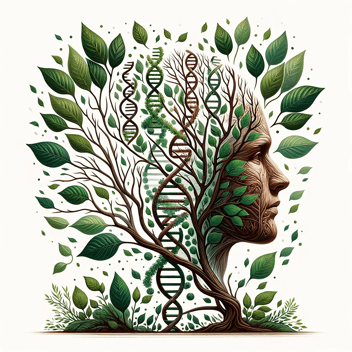The promise of AI in psychiatry: Navigating the mental health crisis
- Home
- Blog

What you will learn
- The escalating crisis in mental health conditions and the role of AI in addressing it.
- How AI can analyze vast amounts of psychiatric literature to aid patient care.
- The potential for AI to enhance patient understanding and involvement in their treatment.
- The use of AI to support patients in becoming informed partners with their healthcare practitioners.
My Dear Reader,
The rise in mental health conditions has become a global crisis, with recent estimates suggesting that nearly one in five adults in the U.S. lives with a mental illness. This figure is echoed in Canada, where one in five Canadians faces a mental illness or addiction problem each year. In Europe, more than one in six people across the EU are impacted by mental health disorders annually. The prevalence of serious mental illness, which significantly interferes with major life activities, is particularly alarming, with about 5.2% of adults in the U.S. affected.
These statistics underscore a critical need for more effective treatment strategies, especially for those experiencing chronic, unremitting, and treatment-resistant mental illnesses. As a psychiatrist deeply invested in the well-being of my patients, I've witnessed the transformative potential of artificial intelligence (AI) in revolutionizing psychiatric care. AI's ability to sift through hundreds of thousands of peer-reviewed articles across various fields—psychiatry, psychopharmacology, psychiatric genomics, epigenetic influences, and more—positions it as a pivotal tool in patient care.
Empowering patients through knowledge
One of the most profound capabilities of AI is its capacity to empower patients. By providing access to a comprehensive knowledge base, AI can answer patient questions with unprecedented accuracy and depth. This not only helps patients feel understood but also equips them with the knowledge to engage in their care more actively.
AI as a collaborative partner in healthcare
AI's role extends beyond patient education; it serves as a collaborative partner in the healthcare process. By analyzing individual patient data against a backdrop of extensive research, AI can offer personalized insights that guide treatment plans. This collaborative approach ensures that patients are not passive recipients of care but informed partners working alongside their doctors.
AI can significantly improve treatment plans in psychiatry by providing personalized care based on extensive data analysis. Here are some ways AI can enhance treatment strategies:
- Turning the complex into something simple: Our patients may find themselves overwhelmed by trying to understand the results of genetic and other laboratory tests we’ve ordered for them to determine the underlying root causes of their conditions. They understandably get confused by all the scientific data, and the implications of the findings for their diagnosis and treatment - for example specific genetic variations or gut microbiome test results. AI can help them understand the meaning of their test results and why we have recommended certain targeted treatments.
- Automated decision support: AI can offer decision-making support to clinicians, helping to diagnose and treat patients with complex medical conditions that have been resistant to prior treatment efforts. By utilizing machine learning and artificial intelligence, AI can render complex treatment plan communications to patients empathically, improving their cooperation with treatment, adherence, and clinical outcomes.
- Root cause analysis: AI can analyze a patient's condition focusing on various potential contributors to their mental health, such as their personal genome, gut microbiome, cellular and mitochondrial health, and their immune system. This approach helps in uncovering underlying causes of mental health conditions and tailoring treatment plans accordingly.
- Continuous learning and adaptation: AI systems can continuously learn from new data, including patient responses to treatments, and adapt treatment plans in real-time to improve effectiveness.
- Enhanced patient monitoring: AI can extend remote monitoring services, which is particularly beneficial in determining the positive and negative effects of treatment interventions between patient visits with their doctor.
These applications of AI in psychiatry not only streamline the treatment process but also ensure that care is more accurate, empathetic, and responsive to the individual needs of patients.
Conclusion
The integration of AI in psychiatric care offers a beacon of hope amidst the mental health crisis. It promises a future where patients are understood, educated, and actively involved in their care, working hand-in-hand with their healthcare practitioners to navigate the complexities of mental health conditions.
.png?width=144&height=144&name=Untitled%20design%20(34).png)

.png?width=352&name=Screenshot%202024-11-08%20at%2010.11.28%20AM%20(1).png)

.jpeg?width=352&name=AdobeStock_517132756%20(1).jpeg)